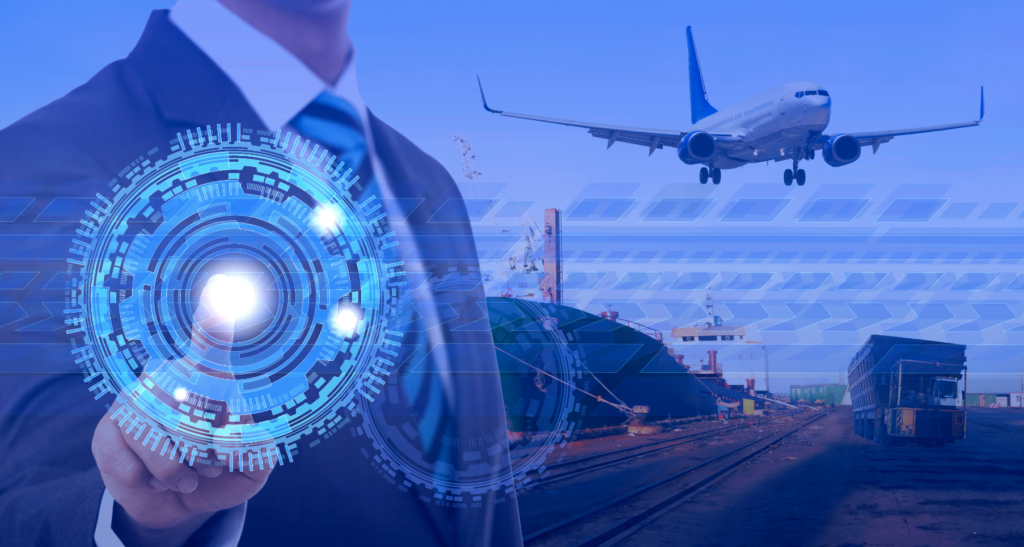The advancement of Artificial Intelligence (AI) in the aviation industry has brought about significant improvements in safety systems. The integration of AI technologies into aviation has the potential to revolutionize how we ensure the safety of flights, from takeoff to landing. With AI’s capabilities, the aviation industry is poised to enhance its safety measures, making air travel safer and more efficient than ever before.

The Role of AI in Aviation
AI technology is being employed in various ways to improve aviation safety. From predictive maintenance to real-time data analysis, AI is at the forefront of modernizing aviation systems. The implementation of AI in aviation safety systems is a testament to the industry’s commitment to utilizing cutting-edge technology to safeguard passengers and crew.
Predictive Maintenance
One of the key applications of AI in aviation safety is predictive maintenance. By analyzing vast amounts of data from aircraft sensors, AI can predict potential mechanical failures before they occur. This proactive approach helps in preventing accidents and reducing downtime, which ultimately enhances the safety and reliability of flights.
Real-Time Data Analysis
AI technology is also used for real-time data analysis in aviation. This capability allows for the continuous monitoring of flight conditions, enabling quick decision-making in response to any anomalies. By processing data rapidly, AI systems provide pilots and ground control with crucial information to ensure flight safety.
Enhancing Pilot Training
AI is not only improving onboard safety systems but also transforming pilot training programs. Through the use of AI-powered simulators, pilots can experience realistic scenarios and practice handling emergencies in a controlled environment. This advanced training helps pilots develop the skills needed to respond effectively to unexpected situations during actual flights.
AI-Powered Simulators
AI-powered flight simulators offer a level of realism that traditional simulators cannot match. By incorporating AI algorithms, these simulators can adapt to different flying conditions and provide pilots with a comprehensive training experience. This technology ensures that pilots are well-prepared to tackle any challenges they may encounter in the air.
Adaptive Learning
In addition to realistic simulations, AI enables adaptive learning in pilot training programs. This approach tailors training modules to the individual needs of each pilot, focusing on areas where they require additional practice. By personalizing the training experience, AI contributes to more effective and efficient pilot training.
Improving Air Traffic Management
AI is also playing a crucial role in enhancing air traffic management systems. By leveraging AI algorithms, air traffic controllers can optimize flight routes, reduce delays, and improve the overall efficiency of air travel. These advancements not only enhance safety but also contribute to a more sustainable aviation industry.
Optimizing Flight Routes
AI systems can analyze vast amounts of data, including weather conditions, air traffic, and aircraft performance, to optimize flight routes. By identifying the most efficient paths, AI helps reduce fuel consumption and minimize the environmental impact of air travel.
Reducing Delays
Delays are a common issue in air travel, but AI is helping to alleviate this problem. By analyzing data in real-time, AI systems can identify potential delays and suggest alternative solutions to keep flights on schedule. This proactive approach improves the overall passenger experience and enhances the efficiency of air travel.
Future Prospects of AI in Aviation
The future of AI in aviation safety systems looks promising. As technology continues to evolve, AI will play an increasingly important role in ensuring the safety and efficiency of air travel. With ongoing research and development, the aviation industry is poised to embrace even more innovative AI solutions in the coming years.
Innovations on the Horizon
Several exciting innovations are on the horizon for AI in aviation. From autonomous aircraft to advanced AI-driven maintenance systems, the possibilities are endless. These advancements have the potential to reshape the aviation industry and set new standards for safety and efficiency.
Challenges and Considerations
While the potential of AI in aviation is immense, there are also challenges to address. Ensuring the security of AI systems and maintaining transparency in decision-making processes are crucial considerations. As the industry moves forward, it is essential to strike a balance between innovation and safety.
Conclusion
The integration of AI in aviation safety systems is transforming the industry and paving the way for safer and more efficient air travel. From predictive maintenance to advanced pilot training, AI is making a significant impact on aviation safety. As technology continues to evolve, the aviation industry will continue to harness the power of AI to enhance safety measures and ensure the well-being of passengers and crew.

FAQ
How is AI used in aviation safety systems?
AI is used in aviation safety systems for predictive maintenance, real-time data analysis, and enhancing pilot training. It helps in identifying potential mechanical failures, monitoring flight conditions, and improving training programs.
What are the benefits of AI in aviation?
AI offers several benefits in aviation, including improved safety, optimized flight routes, reduced delays, and enhanced pilot training. It contributes to more efficient and sustainable air travel.
What challenges does AI face in aviation?
Challenges of AI in aviation include ensuring system security, maintaining transparency, and balancing innovation with safety. Addressing these challenges is crucial for the successful integration of AI in the industry.

